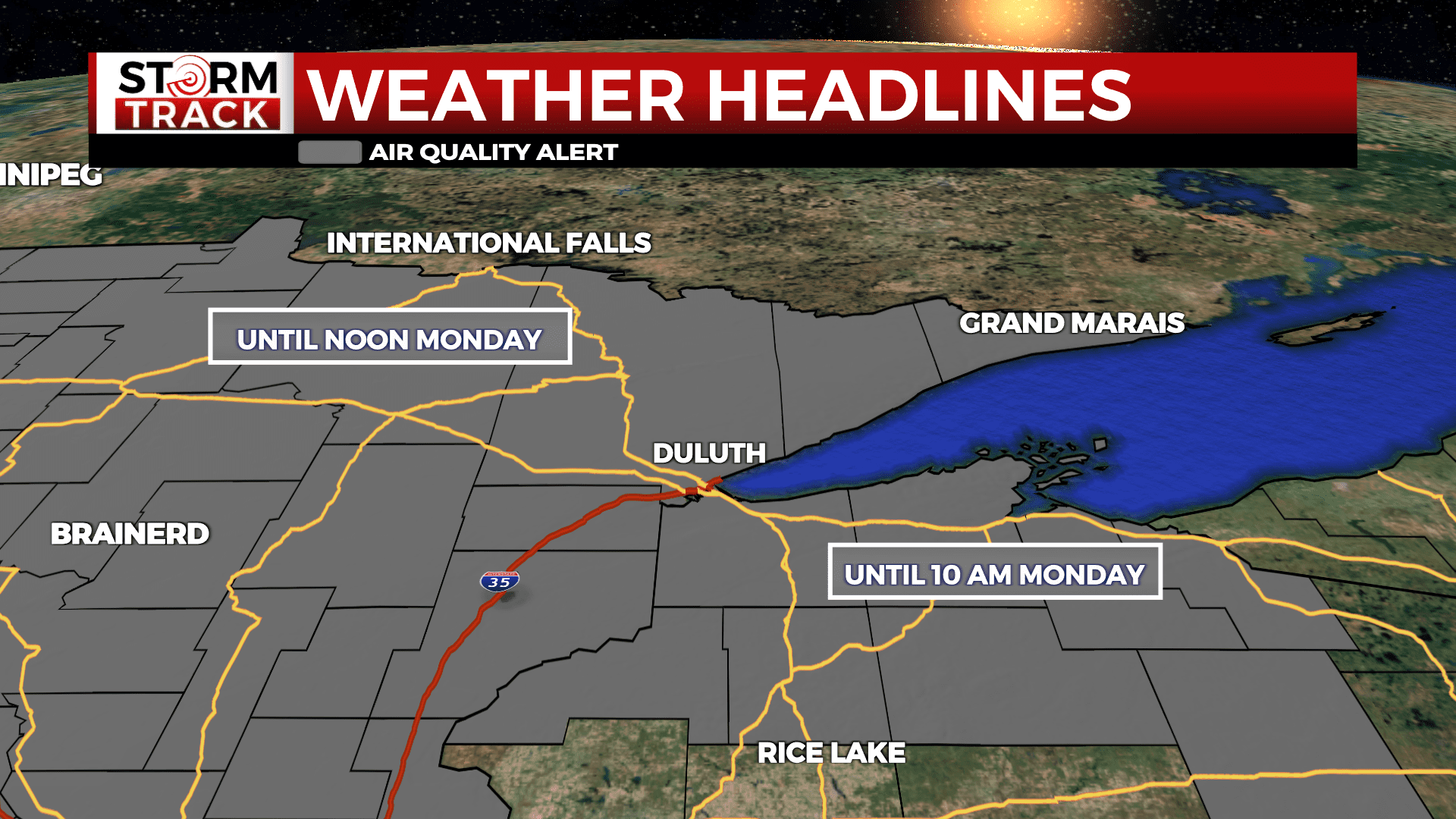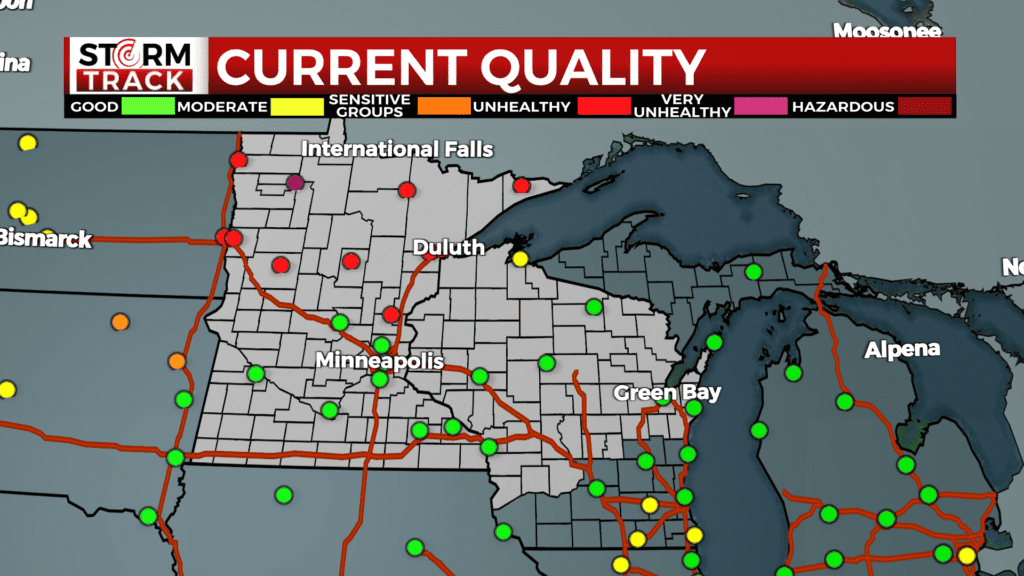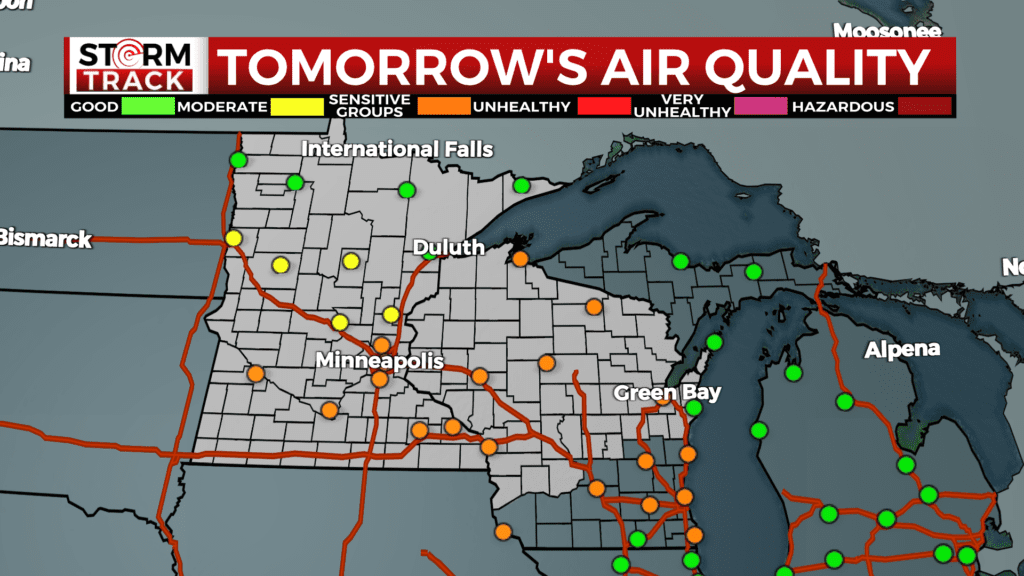Air Quality Alert issued for all of Minnesota and portions of Wisconsin

All of Minnesota and portions of Wisconsin are under an Air Quality Alert Sunday into Monday (WDIO).
The Minnesota Pollution Control Agency issued an Air Quality Alert, in effect from 11 am Sunday to noon Monday. Air quality conditions are expected to be in the Red AQI category across all of Minnesota, which is unhealthy for everyone.
The Wisconsin Department of Resources issued an Air Quality Alert for portions of Wisconsin, including Ashland, Bayfield, Burnett, Douglas, Iron, Price, Sawyer, and Washburn Counties. Current conditions are moderate to unhealthy for sensitive groups.

Very heavy smoke from wildfires in northeast British Columbia has moved into northern Minnesota and far northwest Wisconsin. The smoke will continue moving from northwest to southeast and reach central Minnesota by Sunday afternoon and southern Minnesota by Sunday evening. Unhealthy air quality is expected to persist in northwestern Wisconsin through Sunday and eventually impact the entire state Monday.
Conditions will gradually improve Monday for northern Minnesota. Smoke will persist through midday Monday across southern Minnesota, and air quality will gradually improve through the day as the smoke begins to disperse. In northern Wisconsin, conditions will improve from being unhealthy for sensitive groups to moderate later Monday, and eventually back to being good by Tuesday.

While under an Air Quality Alert in the Red AQI category, everyone should limit prolonged or heavy exertion and time spent outdoors. Anyone may begin to experience symptoms such as irritated eyes, nose, and throat, coughing, chest tightness, or shortness of breath.
Sensitive or more exposed individuals may experience more serious health effects. Some of these effects including worsening of existing heart or lung disease and respiratory and cardiovascular conditions. Poor air quality could also lead to an asthma attack, heart attack, or stroke.
Reduce outdoor physical activities, take more breaks, and avoid intense activities to reduce exposure. Sensitive and more exposed individuals should avoid prolonged or vigorous activities, but also consider shortening, rescheduling, or moving outdoor events inside.
For more information about the current air quality alert issued you can read more here. Also for more information about current weather conditions you can read more here.